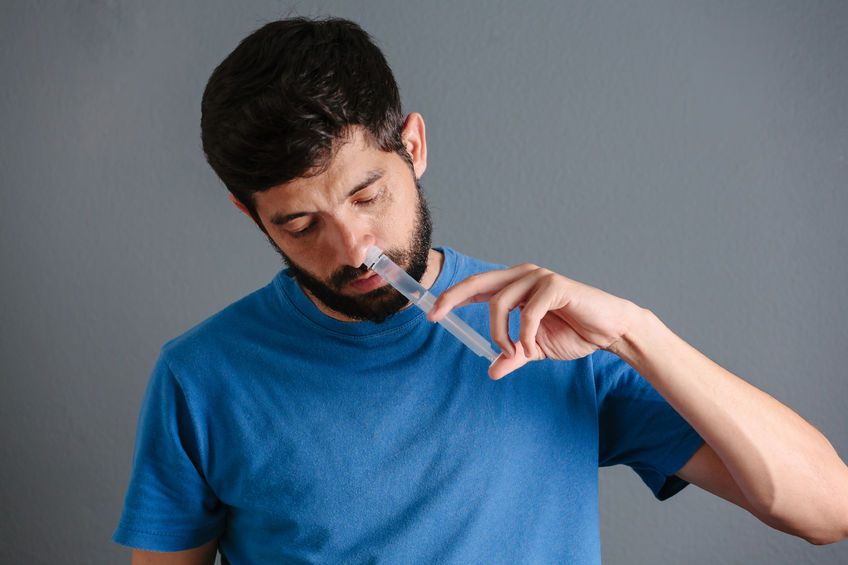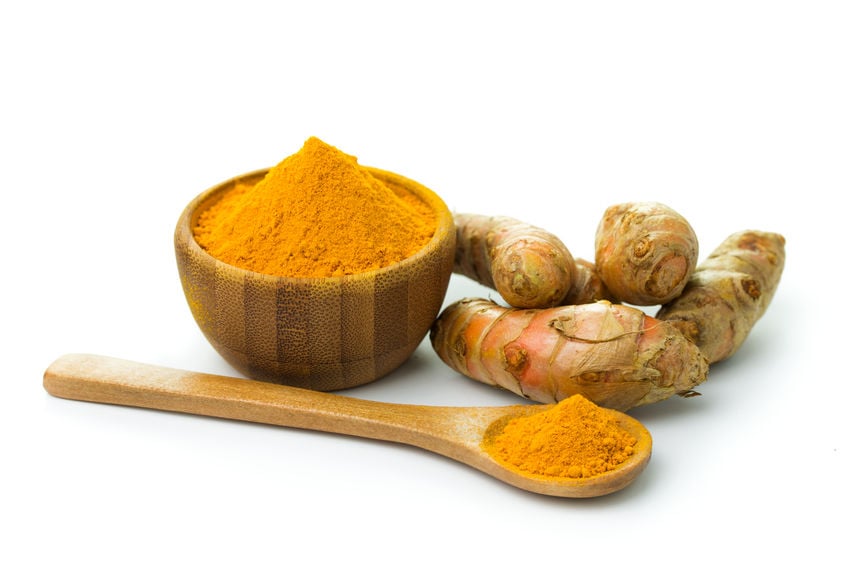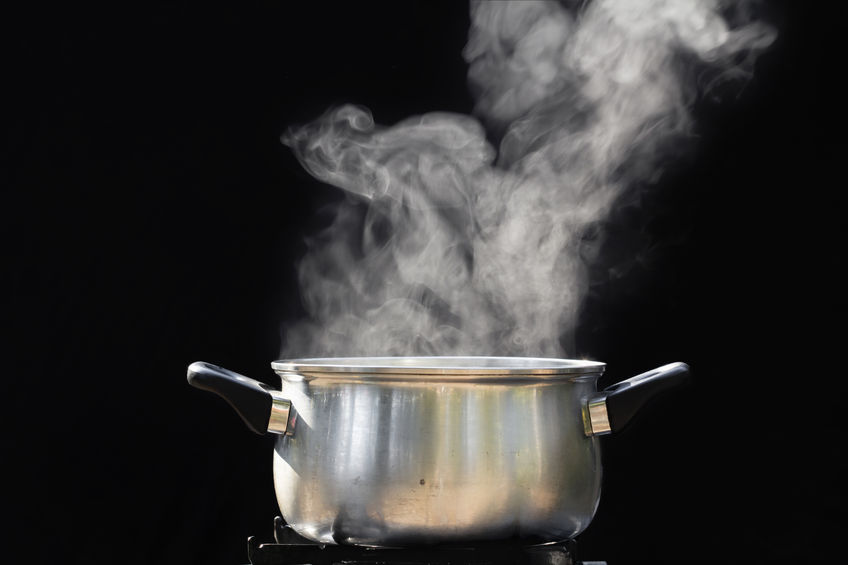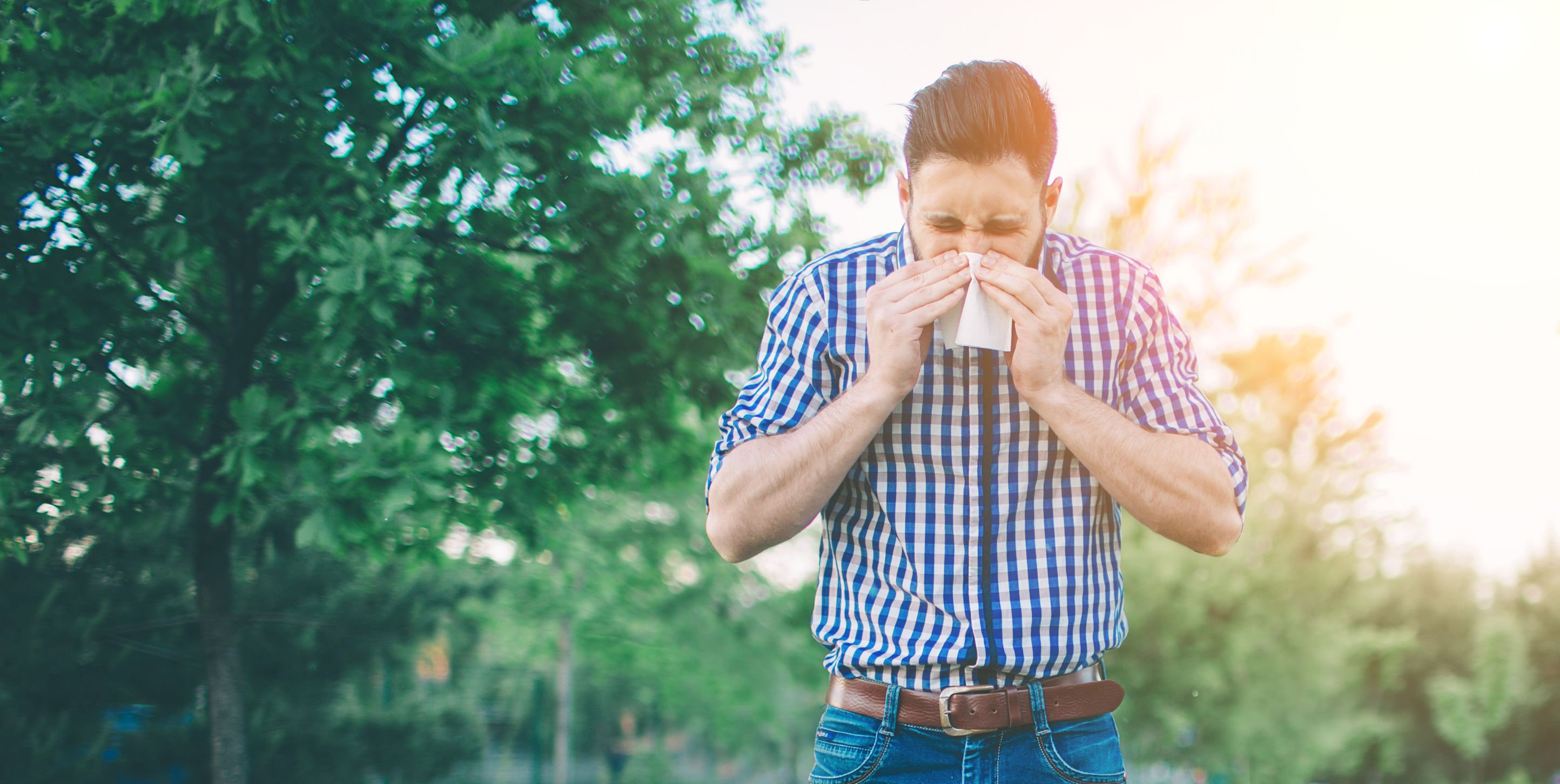Whether it’s from seasonal allergies or just a bug up your nose, sneezing is a natural mechanism of the body that basically clears the nasal cavity.1 Or, as University of Pennsylvania researchers say, sneezing “reboots” the nasal cavity. In effect, sneezing is a defense mechanism of the body.
The most common reason for sneezing is a cold, allergic rhinitis or the flu; the least common is a nose injury. For some people, one sneeze does the job, but for others, the irritation is intense enough to cause more successive sneezes.2
No matter how disruptive it may be, holding in a sneeze is far more dangerous to your health because sneezing has a lot of power (the sudden, powerful expulsion of air can propel mucus droplets at rates up to 100 miles per hour). Holding in a sneeze means you end up turning this force inward and can end up rupturing the eardrums or damaging your sinuses.3
Don’t hold your sneeze in, but do cover your mouth with a handkerchief or an elbow to avoid the spread of infection.
That said, there are ways to help reduce sneezing from occurring in the first place so you can get on with your day. Here are some home remedies to get your sneezing in control!
1. Treat Your Sneezes With Saline
 Many of us who suffer from continuous sneezing or excessive sneezing start to feel irritation in the sinus or nasal cavity before an episode. This is the time to use a nasal saline flush or irrigation, which has proven beneficial to those with seasonal allergies.4 Care should be taken to make sure that the saline solution is isotonic (the same saline levels as the body) and the water used should be boiled and distilled so you don’t end up with an infection.
Many of us who suffer from continuous sneezing or excessive sneezing start to feel irritation in the sinus or nasal cavity before an episode. This is the time to use a nasal saline flush or irrigation, which has proven beneficial to those with seasonal allergies.4 Care should be taken to make sure that the saline solution is isotonic (the same saline levels as the body) and the water used should be boiled and distilled so you don’t end up with an infection.
2. Avoid Trans Fats like the Plague
Studies have linked trans fats to an increase in inflammation of the body’s tissues as well as declining immune function. This means that if you eat a diet high in trans-fat acids, you not only increase the risk of contracting allergies or infection but also increase the possibility of the tissues becoming inflamed.5 The best bet? Cut down on trans fats (like cookies, cakes, potato chips, margarine, and many pre-packaged foods) as much as you can.
3. Get Some Turmeric in Your Diet
 Turmeric, the yellow spice you often see in Indian cuisine, is the dried and powdered underground stems of the turmeric plant (Curcuma longa). An antioxidant, anti-bacterial and anti-inflammatory agent, turmeric can significantly help seasonal allergy-related sneezing, according to research.6
Turmeric, the yellow spice you often see in Indian cuisine, is the dried and powdered underground stems of the turmeric plant (Curcuma longa). An antioxidant, anti-bacterial and anti-inflammatory agent, turmeric can significantly help seasonal allergy-related sneezing, according to research.6
4. Try Some Butterbur
Butterbur is a leafy plant that grows in the marshy regions of Europe, Asia, and North America. It’s been known for its medicinal value since the Middle Ages, where it was first used to treat plague and fevers. Some initial studies have also shown promise of butterbur being an effective remedy in alleviating the symptoms of allergic rhinitis, though more studies are needed to effectively prove its effect.7
5. Have a Hot Cuppa
There’s a reason why grandma’s hot tea always made you feel better! Researchers at Cardiff University suggest that having a hot steaming drink, whether it’s coffee or herbal tea, can alleviate symptoms of colds and flu, including halting those sneezes that wring you out. The hot vapors of the drink work as steam inhalation, easing inflamed and irritated sinus cavities, while the hot sips also soothe the throat, giving you a welcome respite from all the congestion and sneezing.8
6. Get Some Steam In
 Inhaling warm, humidified air can also alleviate symptoms of a cold, flu, allergy or even rhinitis. Plain steam or steam medicated with a decongestant (like Vicks or eucalyptus oil) can soothe the inflamed nasal sinuses and even increase nasal resistance over time, though more studies are needed to pinpoint its effectiveness.9
Inhaling warm, humidified air can also alleviate symptoms of a cold, flu, allergy or even rhinitis. Plain steam or steam medicated with a decongestant (like Vicks or eucalyptus oil) can soothe the inflamed nasal sinuses and even increase nasal resistance over time, though more studies are needed to pinpoint its effectiveness.9
Sneezing is just as annoying as it is refreshing, but it also makes you extremely contagious (or if you aren’t ill, it makes people think you are!). Try these home remedies to give your nose a break and get your breathing back to normal. Gesundheit!
Learn More:
How To Build A Mason Jar Salad (And What To Put In It!)
4 Weird Ways You Can Lower Blood Pressure
How Much Protein In An Egg? (and why eggs are healthy for you)
Sources
1.https://www.pennmedicine.org/news/news-blog/2012/may/biology-of-a-sneeze-rebooting
2.http://www.everydayhealth.com/allergy-pictures/why-we-sneeze-and-other-fun-facts-about-sneezing.aspx#03
3.https://health.clevelandclinic.org/2014/04/dont-stifle-that-sneeze-you-could-get-hurt
4.http://care.american-rhinologic.org/irrigation
5.https://www.ncbi.nlm.nih.gov/pubmed/8050192
6.http://ccrhindia.org/pdf/ijrh/5(1)/4.pdf
7.https://www.ncbi.nlm.nih.gov/pubmed/18219828
8.https://www.ncbi.nlm.nih.gov/pubmed/19145994
9.https://www.ncbi.nlm.nih.gov/pubmed/10796659

You are my aspiration, I have few blogs and rarely run out from to post .